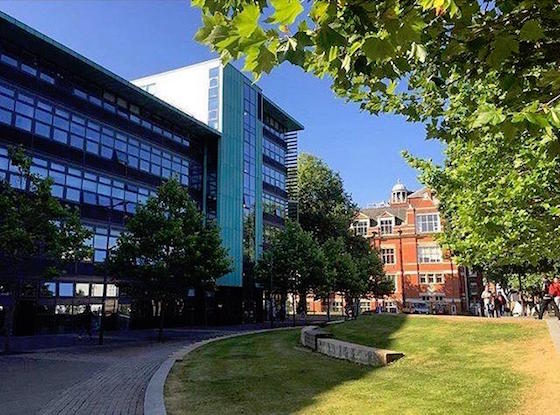De Montfort University Leicester (DMU) announced today that it will raise its tuition fees to £9,250 for all undergraduate students starting their courses in September 2017. This increase follows confirmation that the university meets the criteria for approval set by the Government under the Teaching Excellence Framework (TEF), which allows for an increase in line with inflation to institutions that demonstrate good quality teaching.
The increase will be limited to new undergraduate students only and will not apply to those who have started their courses prior to September 2017.

The rise is an inflationary increase of 2.8% and is the first rise in tuition fees since 2012. The new tuition fees will apply to all new UK and EU students and will be applied across all subjects and programmes. It follows the announcement made by the Government earlier this year that it intends to raise the cap on tuition fees for undergraduates.
In making this decision, the Board of Governors emphasised that the rise is an inflationary increase and that DMU would continue to invest the funding from tuition fees in academic excellence and the student experience, including
outstanding facilities and
student employability.
It should be noted that this decision is dependent on full parliamentary approval which is expected later in the Autumn. DMU wishes to announce this increase now in order that prospective students for 2017/18 have all the information they need to make an informed decision about their choice of university.
YOUR QUESTIONS ANSWERED
Why has the rise in tuition fees for 2017/18 been made?This will be the first rise in tuition fees since 2012. It is an inflationary rise allowed at all UK universities by the Government under certain conditions stipulated through its Teaching Excellence Framework (TEF). These conditions have been met by De Montfort University.
The decision to increase tuition fees for 2017/18 has not been taken lightly. It follows a period of four years during which tuition fees have been fixed but during which significant investment has been made most notably in DMU’s £136m Campus Transformation programme. The £9,000 tuition fees charged since 2012 have depreciated to around £8,180 in real terms due to year-on-year inflation and the decision has been made to increase the fees to enable us to fulfil our commitment to giving our students the best possible university experience.
Who does the increase in fees apply to?This will apply to all UK and EU undergraduate students who start their courses in September 2017. This increase will be limited to new students only and will not apply to those who have started their courses prior to September 2017.
Will student loans be available to cover this rise in tuition fees?Student fees loans are expected to rise in line with the fee cap, to ensure that a university education remains affordable for all.
How will the university use the increase in income from tuition fees?The income will be used to continue to invest in the student experience. DMU is committed to providing the best possible student experience, recently announcing, for example, a range of new measures to enhance the student experience, such as 24/7 365 days per year library opening, a £1m increased investment in sports and support for additional costs for students on a wide range of courses.
We will continue to work closely with the Students’ Union to identify further opportunities to enhance the student experience.
What about the fees for EU students from next year?The fees for new EU students will also increase to £9,250 from 2017/18 in line with the increase announced today. In response to the UK’s decision to leave the EU, DMU has committed to ensuring that fees for EU students remain the same as for UK students for entry up to and including 2018/19.
Posted on Friday 14 October 2016